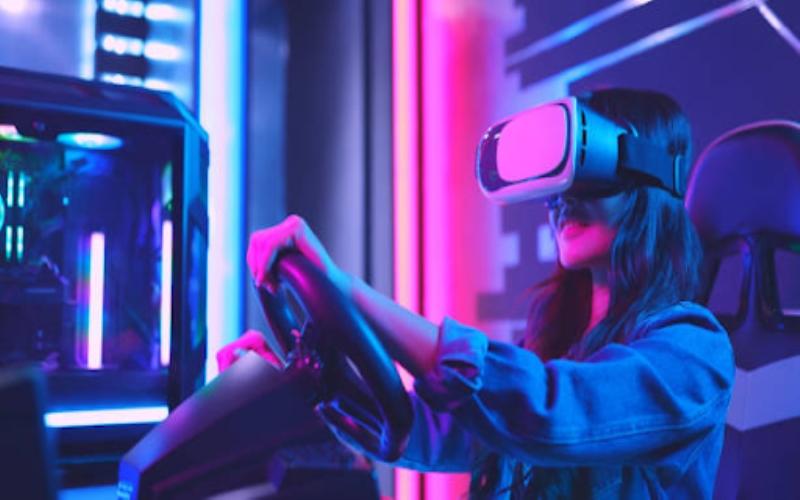The advent of online Togel singapore gaming has ushered in a new era of social interaction, fundamentally transforming how people connect, communicate, and build relationships. As online gaming communities continue to grow and evolve, they are shaping the future of social interaction in profound and unexpected ways. This article explores how these communities influence social behavior, foster global connections, and create new paradigms for engagement and collaboration.
The Evolution of Online Gaming Communities
Online gaming communities have come a long way since the early days of multiplayer gaming. Initially, these communities were small and niche, primarily composed of hardcore gamers who communicated through forums and IRC channels. However, with the proliferation of the internet and the rise of massively multiplayer online games (MMOs) like “World of Warcraft,” these communities expanded dramatically, becoming more diverse and inclusive.
Today, online gaming communities are vast and varied, encompassing millions of players across different platforms and genres. Games like “Fortnite,” “League of Legends,” and “Minecraft” attract players of all ages, backgrounds, and skill levels, creating a rich tapestry of social interaction. These communities are not just about playing games; they are about sharing experiences, forming friendships, and participating in a shared culture.
Fostering Global Connections
One of the most significant impacts of online gaming communities is their ability to connect people from all corners of the globe. Unlike traditional social networks that are often geographically constrained, online gaming allows players to interact with others regardless of their location. This global connectivity fosters cross-cultural exchanges and broadens players’ horizons.
For many players, online gaming communities provide a sense of belonging that transcends national boundaries. Friendships formed in these communities are often based on shared interests and mutual respect, rather than proximity. This global interaction can lead to greater cultural awareness and understanding, as players learn about different perspectives and traditions from their peers.
Enhancing Communication and Collaboration Skills
Online gaming requires effective communication and collaboration, skills that are increasingly valuable in today’s interconnected world. Many multiplayer games involve complex strategies and teamwork, necessitating clear and concise communication. Players must coordinate their actions, share information, and make quick decisions to succeed.
These experiences translate to real-world skills. Players often develop strong verbal and written communication abilities, learn to work effectively in teams, and enhance their problem-solving skills. These competencies are not only beneficial in gaming but also in academic, professional, and personal contexts.
Creating Inclusive and Supportive Environments
Online gaming communities can be remarkably inclusive, providing a platform for individuals who might feel marginalized or isolated in their everyday lives. For example, people with disabilities, social anxieties, or those living in remote areas can find companionship and support through online gaming. These communities often offer a safe space where players can express themselves without fear of judgment or discrimination.
Moreover, many gaming communities actively promote inclusivity and diversity. Initiatives such as women-only gaming groups, LGBTQ+ friendly guilds, and support networks for players with mental health challenges demonstrate the positive social impact of these communities. By fostering inclusivity, online gaming communities help to break down social barriers and create a more connected and empathetic world.
Driving Technological and Social Innovation
The influence of online gaming communities extends beyond social interaction; they are also driving technological and social innovation. Game developers are constantly seeking ways to enhance the social experience within games, leading to advancements in virtual reality (VR), augmented reality (AR), and artificial intelligence (AI).
These technologies are not only revolutionizing gaming but also have broader applications. VR and AR, for instance, are being used in education, healthcare, and professional training to create immersive and interactive experiences. The social dynamics and collaborative nature of online gaming are also informing the development of new social platforms and communication tools.
Shaping Future Social Platforms
As online gaming communities continue to evolve, they are influencing the design and functionality of future social platforms. Traditional social media platforms like Facebook, Twitter, and Instagram are increasingly incorporating features inspired by gaming communities, such as live streaming, real-time interaction, and virtual events.
The concept of the “metaverse” — a collective virtual shared space that blurs the lines between digital and physical realities — is heavily influenced by online gaming. Companies like Meta (formerly Facebook) are investing heavily in creating immersive virtual environments where users can work, play, and socialize. These efforts are rooted in the collaborative and interactive nature of online gaming communities.
Challenges and Considerations
While online gaming communities offer numerous benefits, they also face challenges. Issues such as cyberbullying, toxic behavior, and digital addiction are prevalent concerns that need to be addressed. Game developers and community managers must implement robust policies and tools to ensure safe and positive environments for all players.
Moreover, as these communities continue to grow, maintaining a balance between virtual and real-world interactions is crucial. Encouraging healthy gaming habits and promoting real-life socialization can help mitigate the potential negative effects of excessive gaming.
Conclusion
Online gaming communities are at the forefront of shaping the future of social interaction. By fostering global connections, enhancing communication and collaboration skills, creating inclusive environments, and driving technological innovation, these communities are transforming how people connect and engage with one another. As we move towards an increasingly digital and interconnected world, the lessons learned from online gaming communities will be invaluable in building a more inclusive, empathetic, and interactive future.

